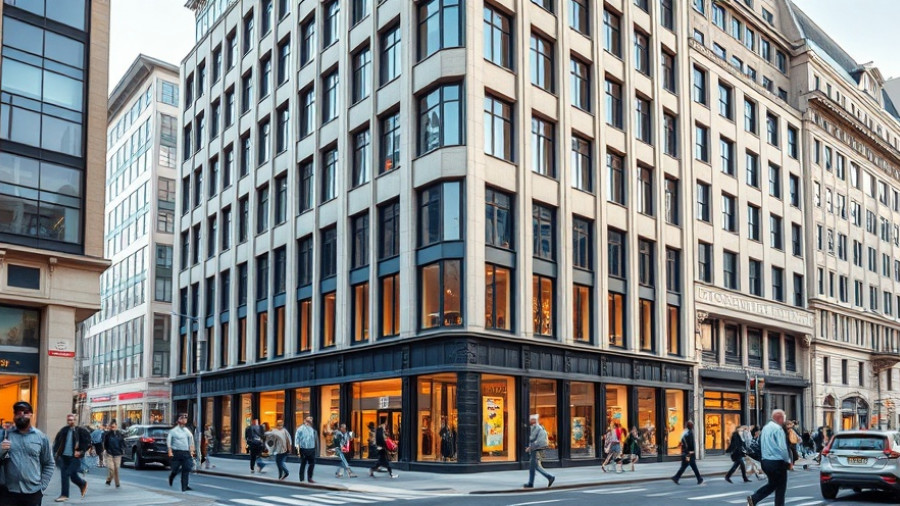
A Strategic Move for EOG Resources in Denver's Business Landscape
The oil and gas giant EOG Resources is making headlines once again, this time with a significant announcement regarding its move to a larger presence in Denver's Lower Downtown (LoDo) area. They've signed a lease for 100,000 square feet at 1550 17th St., marking a notable transition for the company as they prepare to relocate from their current offices in the Dominion Towers complex. New beginnings and downsizing are often part of a corporate strategy, and for EOG, this signals not only a change of scenery but an adaptation to evolving business needs.
Downsizing with Purpose
Interestingly, EOG's new lease begins in January 2026, and it comes with two five-year renewal options. With the company currently occupying approximately 165,000 square feet, this move is a deliberate downsizing that reflects strategic planning rather than a retreat. As energy markets shift and remote work becomes more commonplace, many businesses, including EOG, are reassessing their office space needs. According to industry experts, downsizing can lead to more efficient operations and reduced overhead costs—a necessary adaptation in today's business climate.
The Building's Unique Advantages
The location of EOG's future office at the Millennium Financial Center, which will now be named the EOG Resources Building, offers several advantages. Situated just a block from Union Station, this six-story building not only boasts modern amenities but also embodies the vibrant atmosphere of the LoDo neighborhood. With its architectural charm combined with floor-to-ceiling windows and outdoor spaces, it aligns perfectly with EOG’s need for a conducive work environment that can foster creativity and collaboration.
Impacts on the Local Denver Economy
This move is not just noteworthy for EOG but for the wider Denver business community as well. Many local businesses are eager to see the effects of EOG's relocation, as the presence of such a sizable firm could attract further investment and interest in the area. Additionally, EOG has plans for renovations at their new site, investing $2.6 million in lobby upgrades and exterior improvements. Such investments signal confidence in the Denver market and contribute to the area's economic vitality.
The Larger Picture: A Shift in the Energy Sector
Founded in 1999 and having spun off from the infamous Enron Corp., EOG Resources has made its mark in the oil and natural gas sector, generating $23.7 billion in revenue last year. Their move to LoDo may also reflect broader trends within the industry, which are increasingly focusing on sustainability and efficiency in operations. As energy companies like EOG pivot their growth strategies, it could redefine the future outlook for business in Denver and beyond.
What This Means for Local Stakeholders
For local homeowners and businesses, EOG’s transition presents an opportunity for collaboration and networking, fostering a community that can thrive with shared resources. While the shift may pose its set of challenges, including concerns over rising costs associated with local real estate, the long-term prospects appear promising, feeding into the local economy's growth narrative.
As the energy sector continues to evolve, keeping a close eye on corporate real estate moves like this one can provide insightful forecasts into industry trends and local economic shifts. Understanding the motivations behind such significant leases may help community members to align their expectations and strategic moves in the evolving marketplace.
It remains to be seen how the Denver marketplace will respond to this strategic move by EOG Resources, but one thing is clear: their decision to lease 100,000 square feet in the heart of LoDo represents not just a corporate strategy but a potential catalyst for broader economic growth in the region.
Join the Discussion
What are your thoughts on EOG's relocation to LoDo? Share your insights with us as we follow this development closely.
 Add Row
Add Row  Add
Add 




Write A Comment